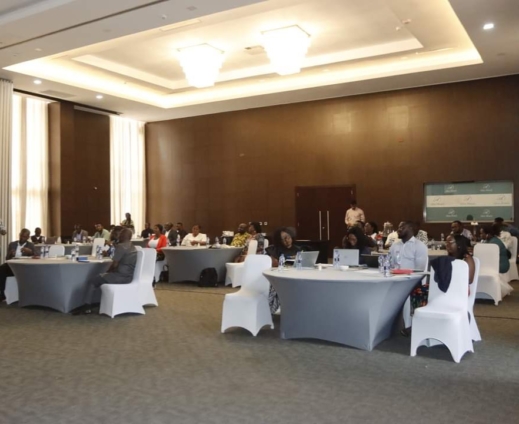The Convener for the Affirmative Action Bill (AAB) Coalition, Sheila Minka-Premo, says the various calls from individuals and organisations are enough justification to fast-track the passage of the bill into law.
Madam Minka-Premo said the AAB, when passed into law, would address social, economic, and educational imbalances, eliminate discrimination, and champion the need for equal opportunities for both men and women.
She made this known during a two-day workshop for journalists organised by the Centre for Democratic Development (CDD) in collaboration with CODEO and the Affirmative Action Bill Coalition with backing from the European Union (EU).
She emphasised that no country could achieve its full potential without the equal economic participation of both women and men, explaining that economic development would be on the decline if the highest portion of the population, being women, were discriminated against, stressing that there was a need for inclusion for the country to thrive.
She said the 40 women members of parliament out of 275 parliamentary seats in the country portrayed an imbalance in the system.
She said such a system was depriving women of their perspective on issues, and therefore called for breaking all barriers to enhance women’s participation in decision-making.
Madam Minka-Premo attributed the low representation of women to the patriarchal system in the country, where the course of men was championed and that of women was demeaned in almost all aspects of social, political, and economic life.
Outlining some critical areas the bill addressed, she mentioned that the marginalisation of women in public and economic life in Ghana was a result of gendered division of labour at home and the lack of legislation to ensure a change for gender equality to be duly dealt with.
The AAB Coalition convener, who is also a lawyer, said that some policies, such as the Girls Education Units of GES, the cabinet’s directive on affirmative action, scholarship schemes set up for females, and affirmative action policies in public universities favouring females for certain courses, have been inactive; therefore, the passage of the bill would address their ineffectiveness.
She added that research had proven that it made economic sense to ensure gender equality, as the economy had better opportunities to grow and become more resilient to crises if women and men have equal rights.
The workshop participants agreed on the need for the affirmative action bill to be passed into law.
Latest Stories
-
220 former MMDCEs endorse Bawumia as 2028 NPP flagbearer
5 minutes -
Iran Israel conflict: Ghanaian businesses lament over rising freight charges
25 minutes -
Qatar closes airspace as UK and US tell citizens to shelter in place
34 minutes -
NPP flagbeaership: I’m quietly building my support base – Dr. Adutwum
35 minutes -
Dr. Adutwum’s bid for NPP flagbearer gains momentum, Railway Market traders declare support
42 minutes -
Ghana winger Christopher Bonsu Baah linked with big-money move to Saudi Arabia – Report
56 minutes -
Police warns public against fake recruitment scam
1 hour -
Bands must be recognised in award schemes – Nkyinkyim Band
2 hours -
Du Bois Museum Foundation marks 40th anniversary of memorial centre for Pan-African culture
2 hours -
Multichoice Ghana announces major discounts on DStv and GOtv
2 hours -
Police in A/R arrest 5 Nigerians, 1 Ghanaian for attack and robbery of bank customers
2 hours -
Kennedy Agyapong committed to party unity but will not be intimidated – Spokesperson
2 hours -
Arathejay recalls surprise visit from Stonebwoy ahead of London show
2 hours -
Newly trained teachers picket GES over unpaid salaries, threaten to sleep on premises
2 hours -
Former MMDCEs dispute claims of endorsing Kennedy Agyapong for NPP flagbearer
2 hours

